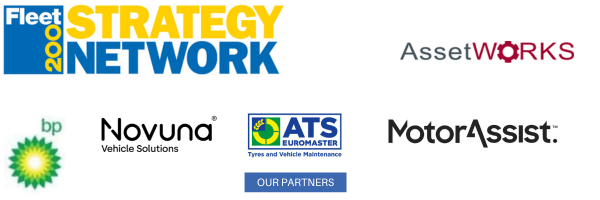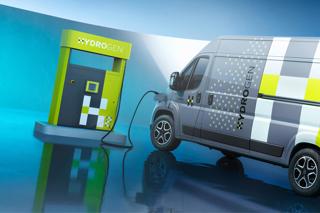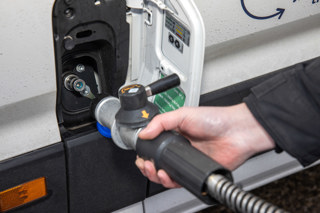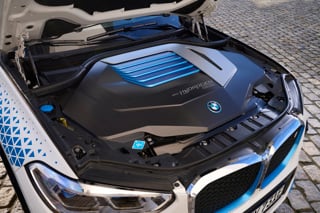The UK is not going to be able to fulfil the Government’s commitment to ban the sale of diesel and petrol vehicles by 2030.
Lack of electric vehicle supply and charge points are among issues making it impossible, Paul Hollick (pictured), Association of Fleet Professionals chairman, told September’s Fleet200 Strategy Network meeting (see details of joining the group below).
“We need to start electrifying our fleets as quickly as we can, but there’s a lack of vehicle availability, charge points, and charge point reliability, drivers can’t access home charging and aren’t being reimbursed properly for charging costs,” he said.
“We’re not going to hit 2030.”
In that instance, the price of diesel vans will “go through the roof” as no one will want electric vans.
So, with the knowledge that seven years is only one-and-half lifecycles away, the Government needs to act.
Only a small proportion of van fleets have begun the transition to EVs, with most dogged by supply and infrastructure problems.
Hollick claims there is a misconception in the industry that “everyone is electrifying their van fleet”.
“If I speak to 20 fleet managers on this issue, about two or three would be heavily into electrification of their vans. The rest are quite passive on the issue.”
One “massive” fleet, he Hollick said, was terminating all its petrol and diesel vans in 2026 to convert to electric.
He named Centrica, Royal Mail, Miti and Openreach as ones he was tracking intensively on their current transition journey describing them as “going through the wall first to be the bloodiest”.
With the pressures on the sector, “we need to learn from their experiences as a community”.
While lack of supply was a hinderance to widescale fleet van transition, the biggest hurdle Hollick believes is the lack of curbside charging units, a conclusion reached on the experience of an AFP committee of the top 20 – 30 UK van fleets.
It found that 70% of these “mega-fleets” drivers didn’t have access to a home charge point because they didn’t have a driveway or weren’t prepared to put a van on it when the family vehicle is using it. Plus, a lot of new housing developments which barred van parking.
The AFP’s response is to create a database of where charge points are needed for LCVs. It’s identified, so far, 80,000 locations for charging that is safe at night and only a couple of minutes’ walk from the driver’s home.
Hollick said the database is being used by the Office for Zero Emission Vehicles and district councils for charging location planning, but more data points are needed.
To that end, in his role as managing director of Lightfoot, he is working with the telematics’ industry to grow the number using van location data when parked overnight, and with operators’ permission, to grow the number to about 300,000.
At that point, Hollick claimed, the database will be of interest to Government.
Finally, he cautioned against van operators expecting hydrogen to be their decarbonisation choice.
“I’m aware of fleets waiting for the hydrogen Vauxhall Vivaro.
"But, having spoken to Stellantis, the bulk of them will go to Germany and a handful to the UK. Germany is getting behind hydrogen, putting subsidies on the bonnet and the infrastructure in place.
"The UK is doing nothing.”






















Login to comment
Comments
No comments have been made yet.